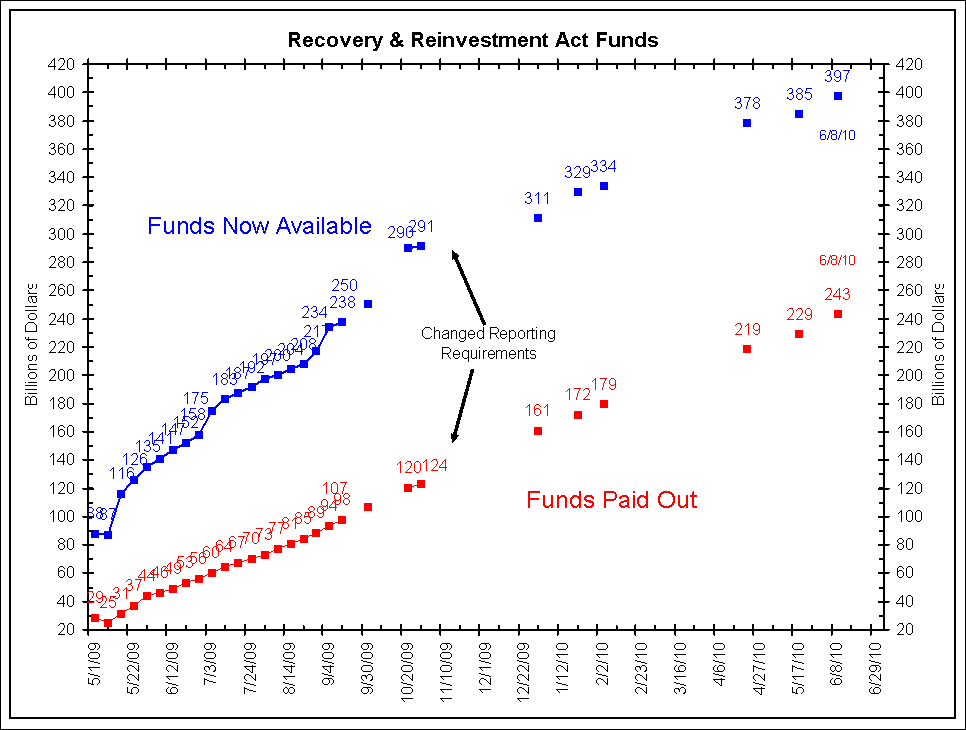•New York Times – Obama Presses for Aid to Cities and States
President Obama on Saturday implored Congress to provide more aid to states and cities to blunt “the devastating economic impact of budget cuts” by local governments that imperil the jobs of teachers, the police, firefighters and other public employees. In a letter to Democratic and Republican Congressional leaders, Mr. Obama said the “mounting employment crisis” in the states “could set back the pace of our economic recovery.” Proponents of aid to the states, including some Congressional Democrats, governors and mayors, have been urging the president to weigh in on proposed legislation, initially providing up to $50 billion in assistance, which has been derailed in the House and Senate. Mr. Obama did not endorse a dollar figure, reflecting the fact that Democratic leaders were trying to determine what amount could win enough votes in their party, given Republicans’ near-unanimous opposition.
•New York Times – State Plan Makes Fund Both Borrower and Lender
Gov. David A. Paterson and legislative leaders have tentatively agreed to allow the state and municipalities to borrow nearly $6 billion to help them make their required annual payments to the state pension fund. And, in classic budgetary sleight-of-hand, they will borrow the money to make the payments to the pension fund — from the same pension fund. As word of the plan spread, some denounced it as a shell game and a blatant effort by state leaders to avoid making difficult decisions, like cutting government spending or reducing pension benefits. “It’s a classic Albany example of kicking the can down the road,” said Harry Wilson, the Republican candidate for comptroller, who holds an M.B.A. from Harvard.
Comment
Are munis going to go bankrupt? We addressed this in our May 20 conference call. The relevant part is excerpted here:
Are Munis Next?
Let’s go to Page 10, which is basically, “Are Munis Next?”
I’ll give you the short course with this. The answer is, “No, munis are not next.”
The top chart on the left of Page 10 basically shows California and Illinois municipal credit default swaps. These are the two widest credit default swaps right now.
<Click on chart for larger image>
Can California and/or Illinois Go Bankrupt?
The answer is, “No, they can’t go bankrupt because there is no provision in the bankruptcy code to allow them to go bankrupt.”
If states are allowed to go bankrupt, then what you would be saying is, “We are allowing a bankruptcy judge to become the governor of the state, for him to make the priorities.” That’s why states cannot go bankrupt.
Well, what if they run out of money?
California and other states have priorities. In California, roughly 50% of their budget goes to education.
Once education is satisfied, the next dollar has to go to meeting debt service. That gets you to about 57% of the budget.
So in order for California to default, they would have to come up 43% short in their revenue assumptions – 43% short.
But even if they did come up 43% short, consider the chart below which shows the stimulus bill. If you want to call this the Municipal Bailout Bill then I don’t think that you would be incorrect in doing so.
<Click on chart for larger image>
$150 billion dollars is the deficit of all of the states in 2010. We’re spending roughly $135 billion in the stimulus bill. This is a bailout for the states.
So if California needs more money, then what will happen at that point — and this is what they put in their budget earlier this week – is that California could request billions of dollars in stimulus money to be spent on education. So those billions of dollars, then, could be shifted next up the line to be spent on debt service.
This doesn’t mean that the states have no problems; they have huge problems. It just means that bankruptcy of the state is not as likely as in Europe. Rather, they could become a gigantic drag on the federal government.
So will California be Greece? I think that the simple answer is, “No, they won’t have a debt service problem. They’ll just drag everybody else down with them.”




What's been said:
Discussions found on the web: